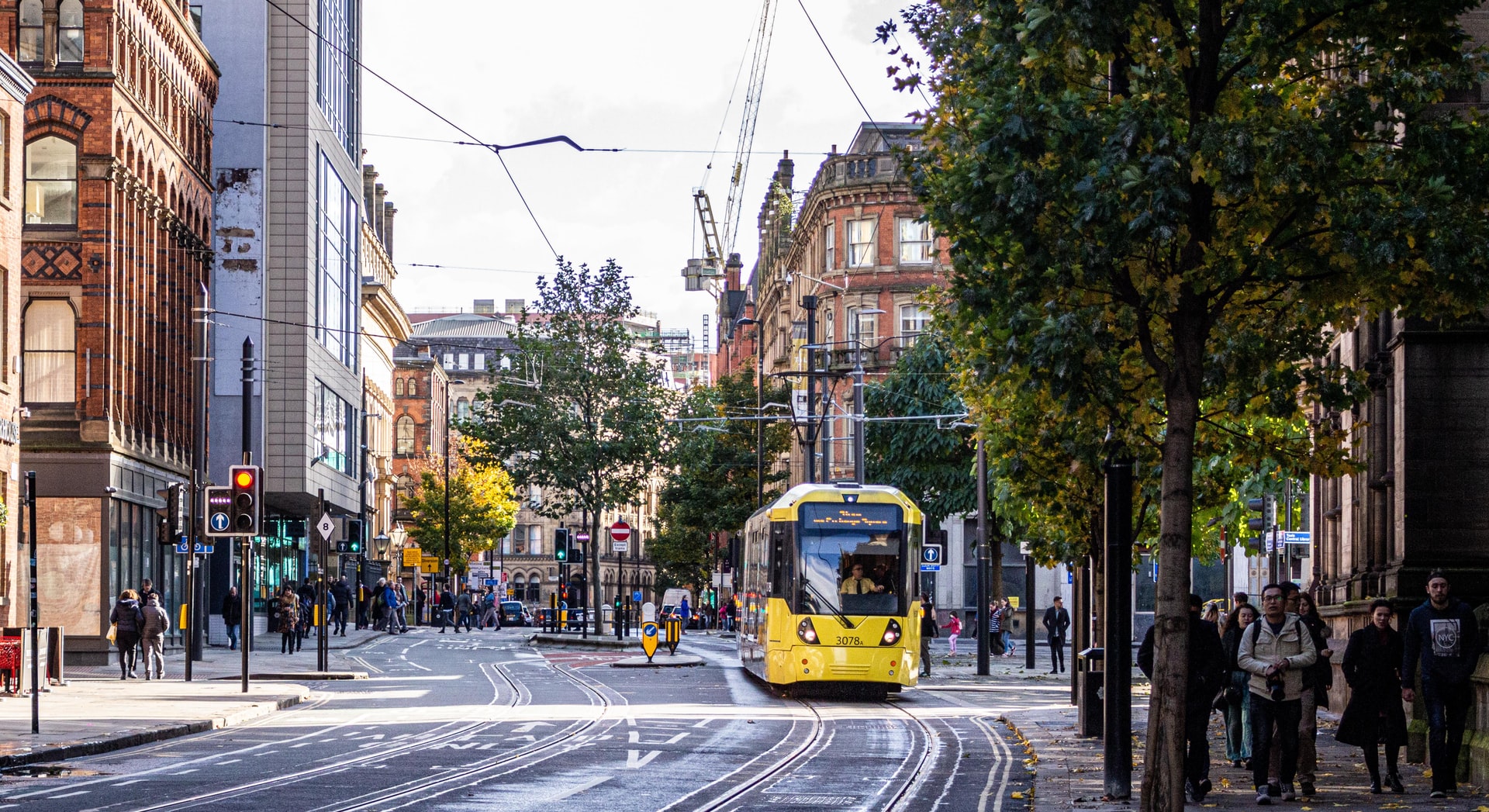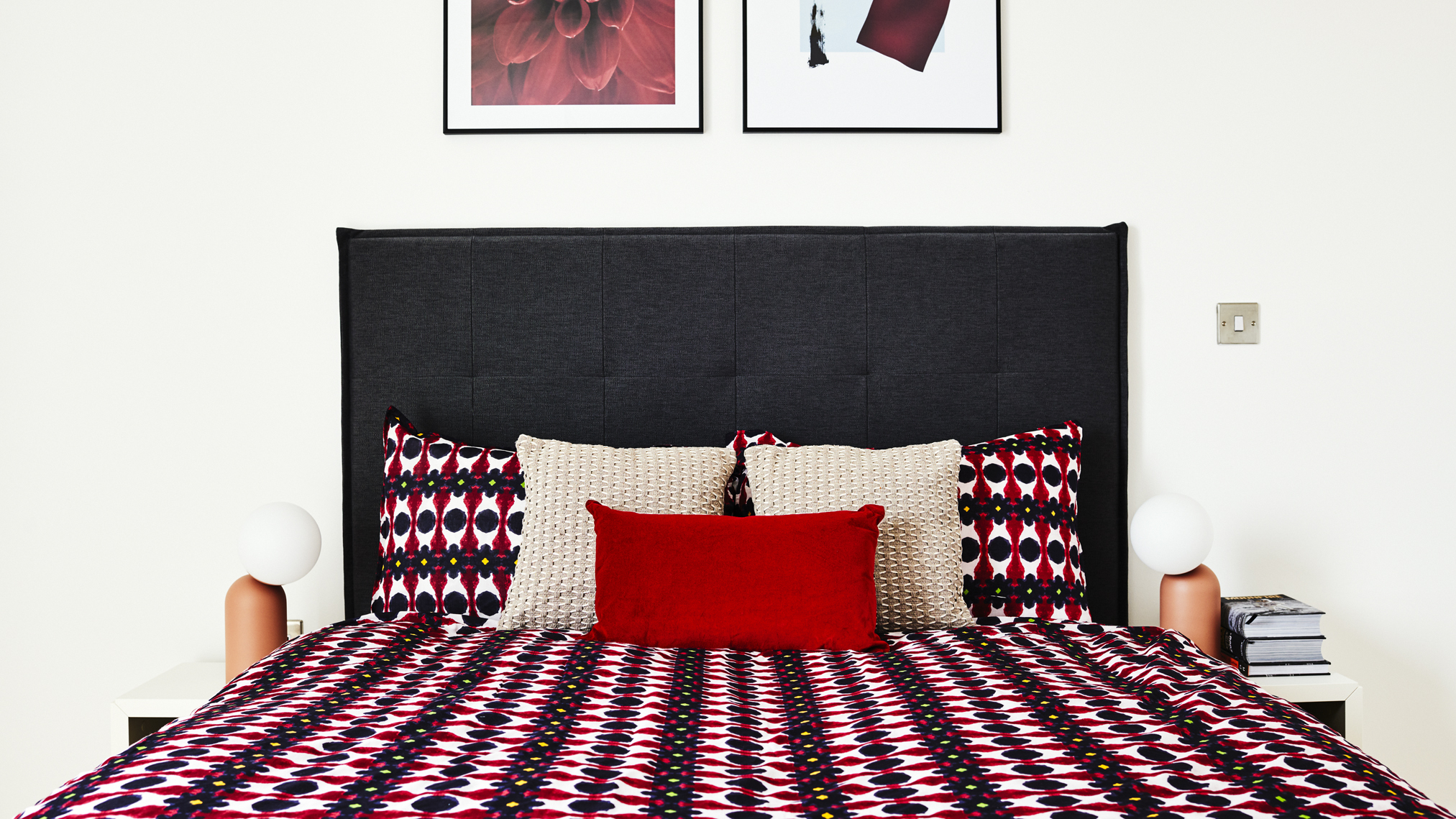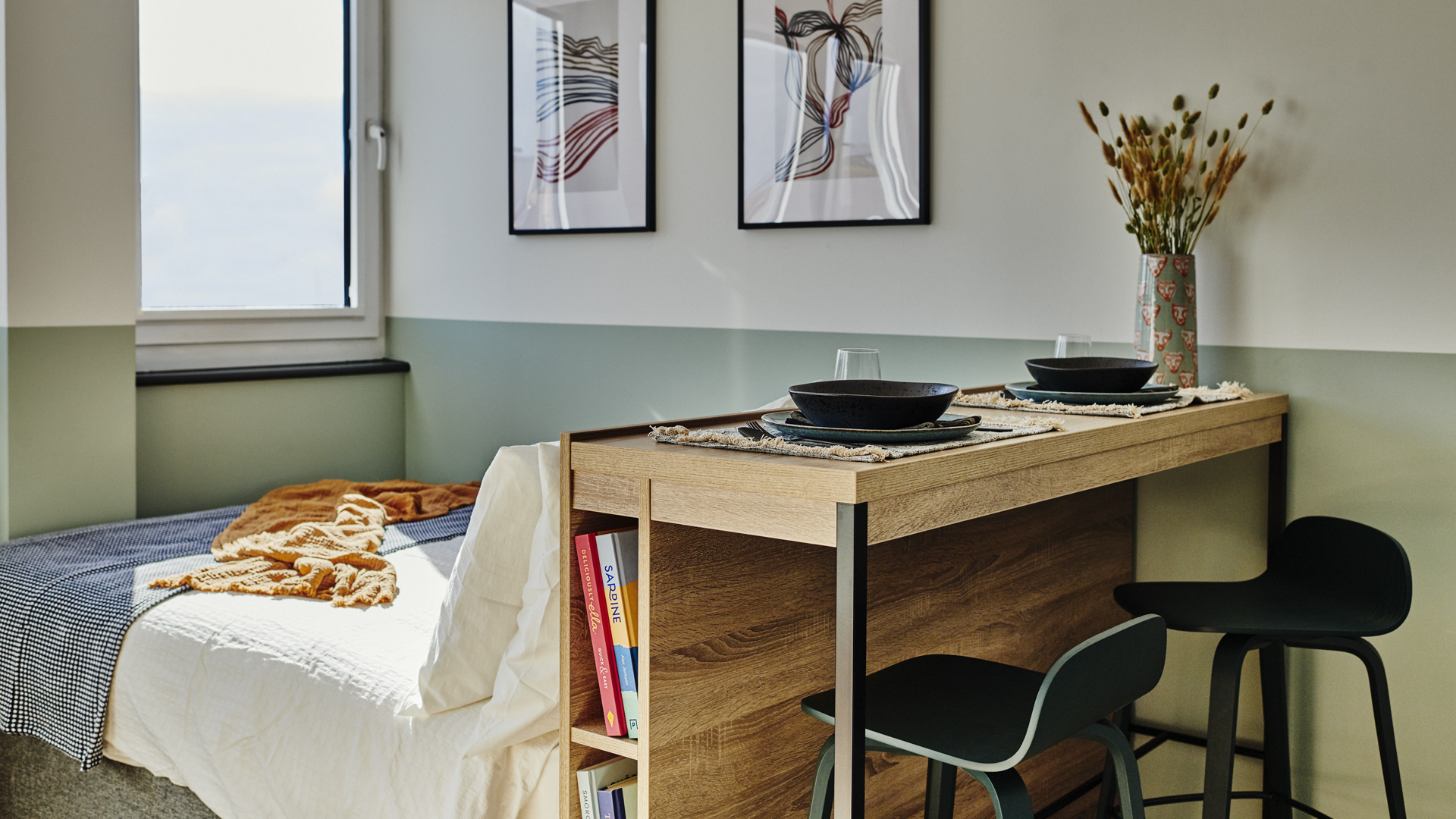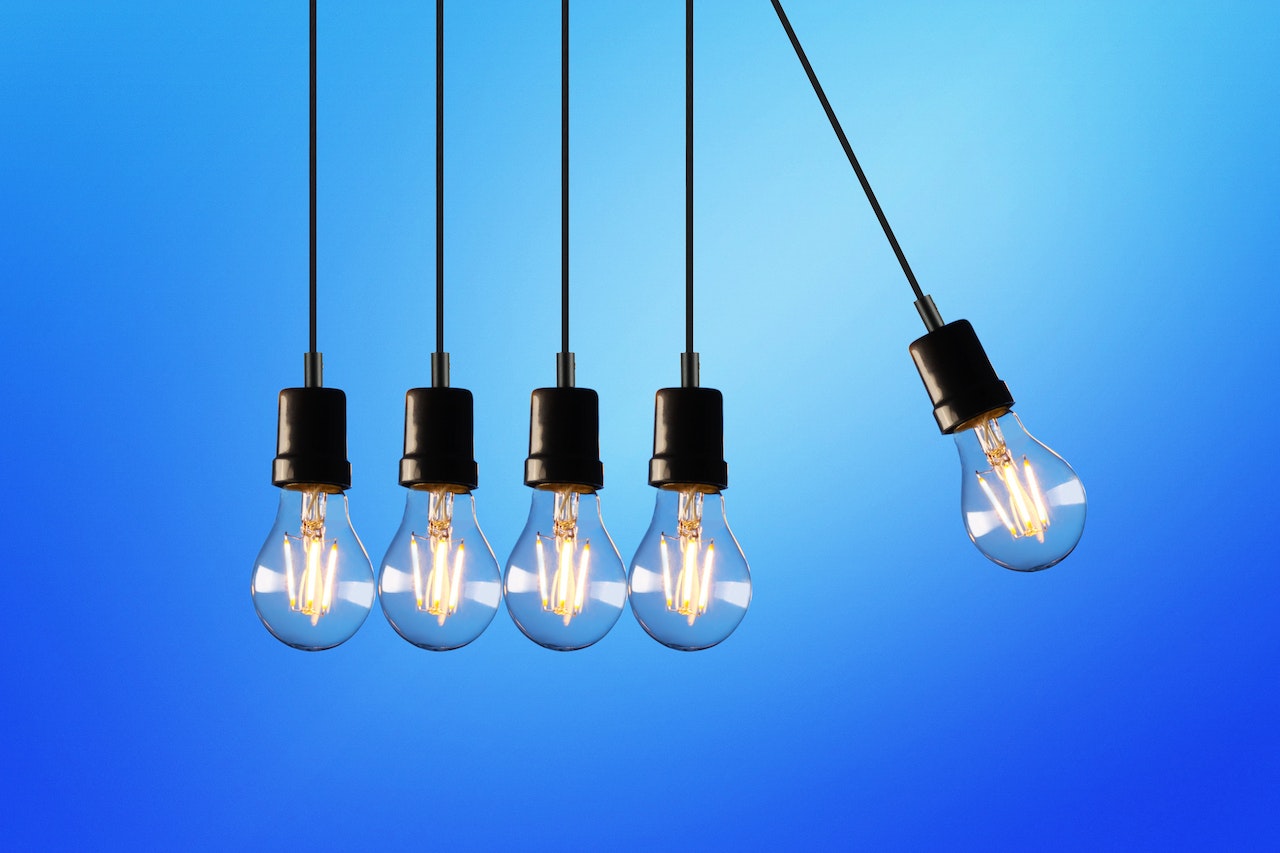
Creative ways for renters to save electricity
While the weather is starting to get warmer, even keeping the heating turned off doesn’t necessarily mean keeping costs down will be easier.
More than half of adults in the UK are already trying to use less fuel in an attempt to ease their expenses. However, while there is a huge focus on trying to use less, there should also be time and energy devoted to using fuel more cleverly.
To help you keep costs down we’ve put together some creative ways to save electricity this year, focusing on renters, to help tenants who might be struggling with the cost of living crisis.
"More than half of adults in the UK are already trying to use less fuel in an attempt to ease their expenses."
Easy changes that will impact your energy usage
Here are a list of apartment hacks to save money, that are both easily achievable and guaranteed to be reflected in your electricity bill.
Plant power
Through creating shade and the power of photosynthesis, plants and trees help to keep the planet cool - another reason why deforestation is terrible for the environment. You can replicate the power of trees by having plants in your home - any large and leafy house plants will release moisture into the air on hot days, keeping you cool as a cucumber when the temperatures soar.
Reject the expensive-to-run air conditioning and standing fans and lean into the green.
Keeping plants on your window or balcony will filter sunlight, and can prevent the sun from heating up your apartment too much on sunny days. Plants also purify the air, keeping things feeling tropically fresh even in a high-rise in the middle of the city.
Slow things down
Slow cookers are considered a very energy-efficient appliance, using roughly 5p per hour. If you’re a carnivore who’s feeling the pinch with the rising costs of groceries, using a slow cooker will mean you’ll be able to buy the cheaper, tougher cuts of meat and stew them into tenderness without needing to lift a finger or turn on your oven.
While slow cookers are designed to be left unattended, there may be some people who still find the idea of leaving an appliance on when they’re away during the day anxiety-inducing. We’ll have more recommendations for energy-efficient appliances further down.
"If you’re not in need of shower therapy, try and keep them short and sweet to save both water and energy."
Switch up your daily routine to save money on your electricity bill
Here are some good habits to incorporate into your daily routine that will help to reduce your energy bill:
- Turn off the lights: Get into the habit of turning off the lights when you leave a room, and not having the lights on at all when there’s plenty of natural light available. While this may feel small, it can make a big difference over time.
- Unplug anything not in active use: Even on standby, gadgets and appliances around your home might be using more energy than you realise. These ‘vampire devices’ could include any smart speakers, games consoles, or even your kettle - anything that stays plugged in for 24 hours a day. Even your phone charger will chip away at your savings if left plugged in.
- Stick to short showers: Sometimes a long hot shower is the only thing that can save you from a rubbish day. If you’re not in need of shower therapy, try and keep them short and sweet to save both water and energy.
- Draw the curtains: Curtains are an underestimated source of insolation for your home. On winter nights keeping the curtains drawn prevents heat from escaping, so using your curtains correctly can help with reducing the need for central heating.
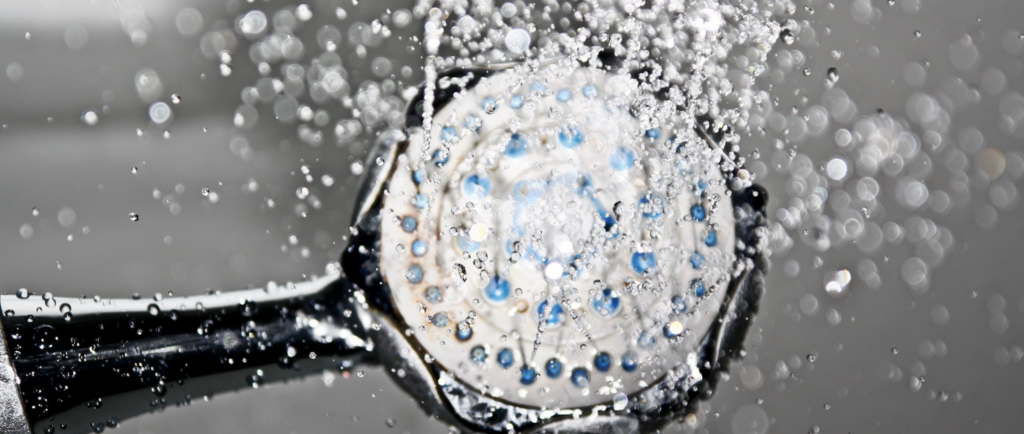
Reduce your carbon footprint
Being energy-efficient isn’t just good for your bank account - it’s also a way of being kinder to the planet. While the following tips might not specifically impact your electricity bill, they will help with overall spending - and your carbon footprint.
Sometimes when you rent a flat or apartment, hacks to save money - and benefit the planet - might seem inaccessible. Not having access to a garden or balcony, or being unable to make any major renovations to your home, can leave you feeling a little powerless. But both reducing your carbon footprint and saving money are about impacting the way you live right now, not making any costly additions or dramatic lifestyle changes.
For instance, planting a windowsill herb garden comes with multiple benefits. You save money at the shops by using home-grown herbs; you benefit from the purified air cycled by the plants; and there’s now one less household buying herbs in single-use packaging, which is good for the planet.
Day-to-day tips that also benefit you, your wallet and the planet include:
- Using public transportation wherever possible.
- Drinking from a reusable water bottle.
- Switching to a greener energy supplier.
- Washing your clothes at lower temperatures.
What uses the most electricity in your home?
It might not come as a surprise that the kitchen is the place to start when trying to save electricity at home. According to EDF your dishwasher, tumble dryer, washing machine and oven are some of the most costly household appliances, collectively responsible for roughly 31% of your energy bill. Obviously (and for some, worryingly) the number of people in your household could cause this number to increase or decrease.
In general, appliances that change the state of something will be the most costly. Things that drastically change temperatures, or use a lot of water, (especially if this water needs to be heated) are the most likely to be expensive, as heating and cooling take a lot of energy.
An example household’s energy breakdown could look like this:
- Heating/air conditioning - 50%
- Appliances - 20%
- Lighting - 15%
- Water heating - 10%
- Electronic devices - 5%
This is part of the reason why it’s highly recommended to install a smart meter if you are able to. Having a clearer picture of what is contributing to your energy bill month to month will help you to identify areas where you can live smarter, greener, and most cost-effectively.
Recommendations for energy-efficient appliances
We’ve already sung the praises of the mighty slow cooker, but there are more appliances that can save you money in the kitchen, and elsewhere in the home.
Air fryers
As well as being trendy and ingenious, air fryers are often cheaper to run than your oven. Particularly if you are a small household, keeping your meals contained to the air fryer could save you money on your energy bill. Not to mention, they can cut your calorie intake by 70-80% by negating some of the less desirable side effects of oil-frying.
Microwaves
Chances are you already own a microwave - but are you using it to its full potential? Microwave technology is great because it only heats the food placed inside of them, not the surrounding air. This requires less energy, takes less time, and costs less money.
Solar-powered energy banks
If you’re super keen on saving energy however possible, even on a much smaller scale, using a solar-powered power bank to fuel your handheld electronics could be a game-changer this summer. Especially useful if you’re on the go, but also for when you’re relaxing at home on a sunny day.
Some more tips for keeping your home and your belongings as energy-efficient as possible:
- Always compare EPC labels when shopping for appliances.
- Consider ditching your desktop computer for a laptop, as they use less energy.
- Invest in properly draught-proofing your home, as it can save you £50-£60 a year.
Why apartments to rent are great for saving money
Even without using any of our creative ways to save electricity, apartments and flats are much more energy-efficient than houses. For starters, fewer exposed walls and a smaller space to heat or cool means you’re less likely to rack up pricey central heating bills. In fact, flats and maisonettes were the most energy-efficient property type in England and Wales in 2022. While there may be a lot of social and societal pressure to buy, sometimes renting comes with its own unique benefits.
We’re big fans of renting - but only the UNCLE way. That means friendly resident managers, inviting communal spaces like rooftop gardens and gyms, and the security of knowing that simple repairs will be fixed within 48 hours. If you think that sounds like the way renting should be, why not book a viewing? We currently have properties in both London and Manchester, furnished and unfurnished, waiting to welcome you home. Get in touch with us today to find out more.
Even dressing it up with a cutesy abbreviation does little to bring any lightheartedness to the state of the nation’s energy bills.The ‘cozzie-lives’ crisis, as some have chosen to call it, definitely left people feeling cold this past winter. Between January 2022 and January 2023 electricity and gas prices rose by 66.7% and 129.4% respectively.
While the weather is starting to get warmer, even keeping the heating turned off doesn’t necessarily mean keeping costs down will be easier.
More than half of adults in the UK are already trying to use less fuel in an attempt to ease their expenses. However, while there is a huge focus on trying to use less, there should also be time and energy devoted to using fuel more cleverly.
To help you keep costs down we’ve put together some creative ways to save electricity this year, focusing on renters, to help tenants who might be struggling with the cost of living crisis.
Easy changes that will impact your energy usage
Here are a list of apartment hacks to save money, that are both easily achievable and guaranteed to be reflected in your electricity bill.
Plant power
Through creating shade and the power of photosynthesis, plants and trees help to keep the planet cool - another reason why deforestation is terrible for the environment. You can replicate the power of trees by having plants in your home - any large and leafy house plants will release moisture into the air on hot days, keeping you cool as a cucumber when the temperatures soar.
Reject the expensive-to-run air conditioning and standing fans and lean into the green.
Keeping plants on your window or balcony will filter sunlight, and can prevent the sun from heating up your apartment too much on sunny days. Plants also purify the air, keeping things feeling tropically fresh even in a high-rise in the middle of the city.
Slow things down
Slow cookers are considered a very energy-efficient appliance, using roughly 5p per hour. If you’re a carnivore who’s feeling the pinch with the rising costs of groceries, using a slow cooker will mean you’ll be able to buy the cheaper, tougher cuts of meat and stew them into tenderness without needing to lift a finger or turn on your oven.
While slow cookers are designed to be left unattended, there may be some people who still find the idea of leaving an appliance on when they’re away during the day anxiety-inducing. We’ll have more recommendations for energy-efficient appliances further down.
Switch up your daily routine to save money on your electricity bill
Here are some good habits to incorporate into your daily routine that will help to reduce your energy bill:
- Turn off the lights: Get into the habit of turning off the lights when you leave a room, and not having the lights on at all when there’s plenty of natural light available. While this may feel small, it can make a big difference over time.
- Unplug anything not in active use: Even on standby, gadgets and appliances around your home might be using more energy than you realise. These ‘vampire devices’ could include any smart speakers, games consoles, or even your kettle - anything that stays plugged in for 24 hours a day. Even your phone charger will chip away at your savings if left plugged in.
- Stick to short showers: Sometimes a long hot shower is the only thing that can save you from a rubbish day. If you’re not in need of shower therapy, try and keep them short and sweet to save both water and energy.
- Draw the curtains: Curtains are an underestimated source of insolation for your home. On winter nights keeping the curtains drawn prevents heat from escaping, so using your curtains correctly can help with reducing the need for central heating.
Reduce your carbon footprint
Being energy-efficient isn’t just good for your bank account - it’s also a way of being kinder to the planet. While the following tips might not specifically impact your electricity bill, they will help with overall spending - and your carbon footprint.
Sometimes when you rent a flat or apartment, hacks to save money - and benefit the planet - might seem inaccessible. Not having access to a garden or balcony, or being unable to make any major renovations to your home, can leave you feeling a little powerless. But both reducing your carbon footprint and saving money are about impacting the way you live right now, not making any costly additions or dramatic lifestyle changes.
For instance, planting a windowsill herb garden comes with multiple benefits. You save money at the shops by using home-grown herbs; you benefit from the purified air cycled by the plants; and there’s now one less household buying herbs in single-use packaging, which is good for the planet.
Day-to-day tips that also benefit you, your wallet and the planet include:
- Using public transportation wherever possible.
- Drinking from a reusable water bottle.
- Switching to a greener energy supplier.
- Washing your clothes at lower temperatures.
What uses the most electricity in your home?
It might not come as a surprise that the kitchen is the place to start when trying to save electricity at home. According to EDF your dishwasher, tumble dryer, washing machine and oven are some of the most costly household appliances, collectively responsible for roughly 31% of your energy bill. Obviously (and for some, worryingly) the number of people in your household could cause this number to increase or decrease.
In general, appliances that change the state of something will be the most costly. Things that drastically change temperatures, or use a lot of water, (especially if this water needs to be heated) are the most likely to be expensive, as heating and cooling take a lot of energy.
An example household’s energy breakdown could look like this:
- Heating/air conditioning - 50%
- Appliances - 20%
- Lighting - 15%
- Water heating - 10%
- Electronic devices - 5%
This is part of the reason why it’s highly recommended to install a smart meter if you are able to. Having a clearer picture of what is contributing to your energy bill month to month will help you to identify areas where you can live smarter, greener, and most cost-effectively.
Recommendations for energy-efficient appliances
We’ve already sung the praises of the mighty slow cooker, but there are more appliances that can save you money in the kitchen, and elsewhere in the home.
Air fryers
As well as being trendy and ingenious, air fryers are often cheaper to run than your oven. Particularly if you are a small household, keeping your meals contained to the air fryer could save you money on your energy bill. Not to mention, they can cut your calorie intake by 70-80% by negating some of the less desirable side effects of oil-frying.
Microwaves
Chances are you already own a microwave - but are you using it to its full potential? Microwave technology is great because it only heats the food placed inside of them, not the surrounding air. This requires less energy, takes less time, and costs less money.
Solar-powered energy banks
If you’re super keen on saving energy however possible, even on a much smaller scale, using a solar-powered power bank to fuel your handheld electronics could be a game-changer this summer. Especially useful if you’re on the go, but also for when you’re relaxing at home on a sunny day.
Some more tips for keeping your home and your belongings as energy-efficient as possible:
- Always compare EPC labels when shopping for appliances.
- Consider ditching your desktop computer for a laptop, as they use less energy.
- Invest in properly draught-proofing your home, as it can save you £50-£60 a year.
Why apartments to rent are great for saving money
Even without using any of our creative ways to save electricity, apartments and flats are much more energy-efficient than houses. For starters, fewer exposed walls and a smaller space to heat or cool means you’re less likely to rack up pricey central heating bills. In fact, flats and maisonettes were the most energy-efficient property type in England and Wales in 2022. While there may be a lot of social and societal pressure to buy, sometimes renting comes with its own unique benefits.
We’re big fans of renting - but only the UNCLE way. That means friendly resident managers, inviting communal spaces like rooftop gardens and gyms, and the security of knowing that simple repairs will be fixed within 48 hours. If you think that sounds like the way renting should be, why not book a viewing? We currently have properties in both London and Manchester, furnished and unfurnished, waiting to welcome you home. Get in touch with us today to find out more.
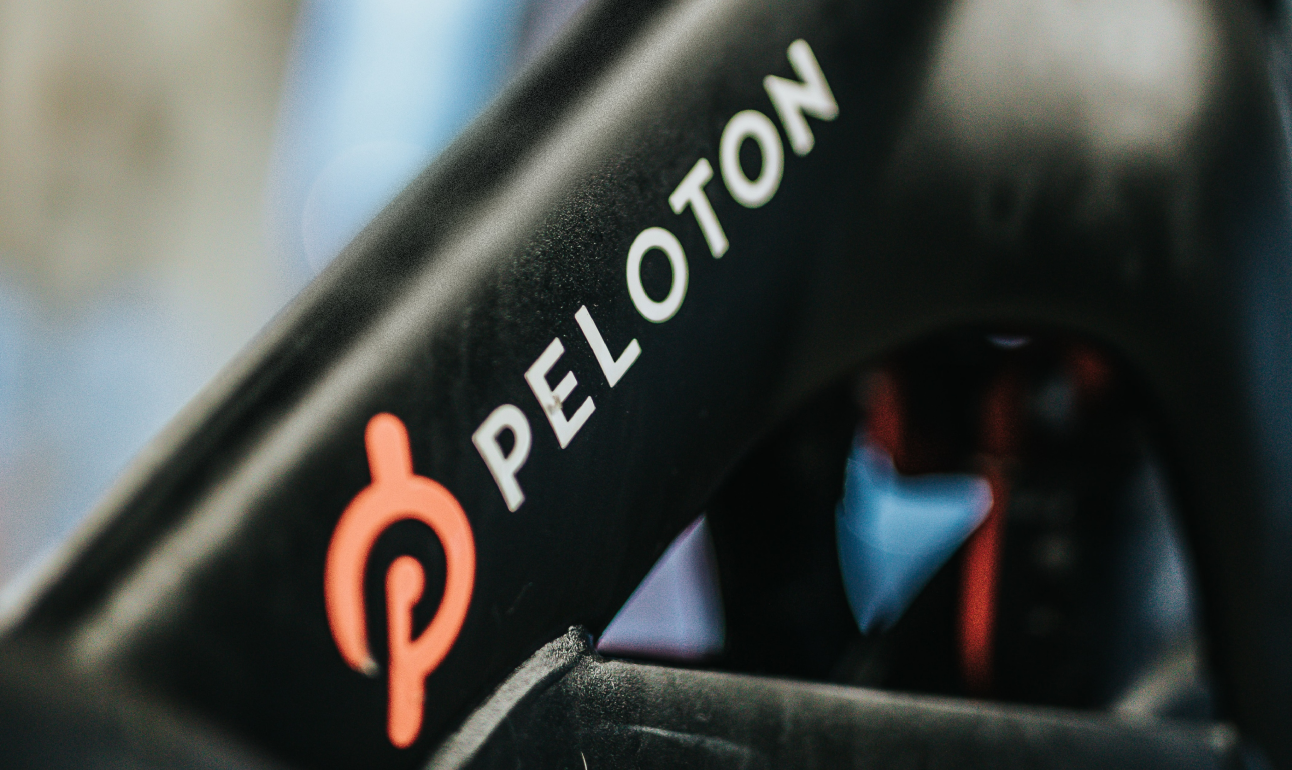
Which are the best gyms in the Stockwell area? 5 of our favourites
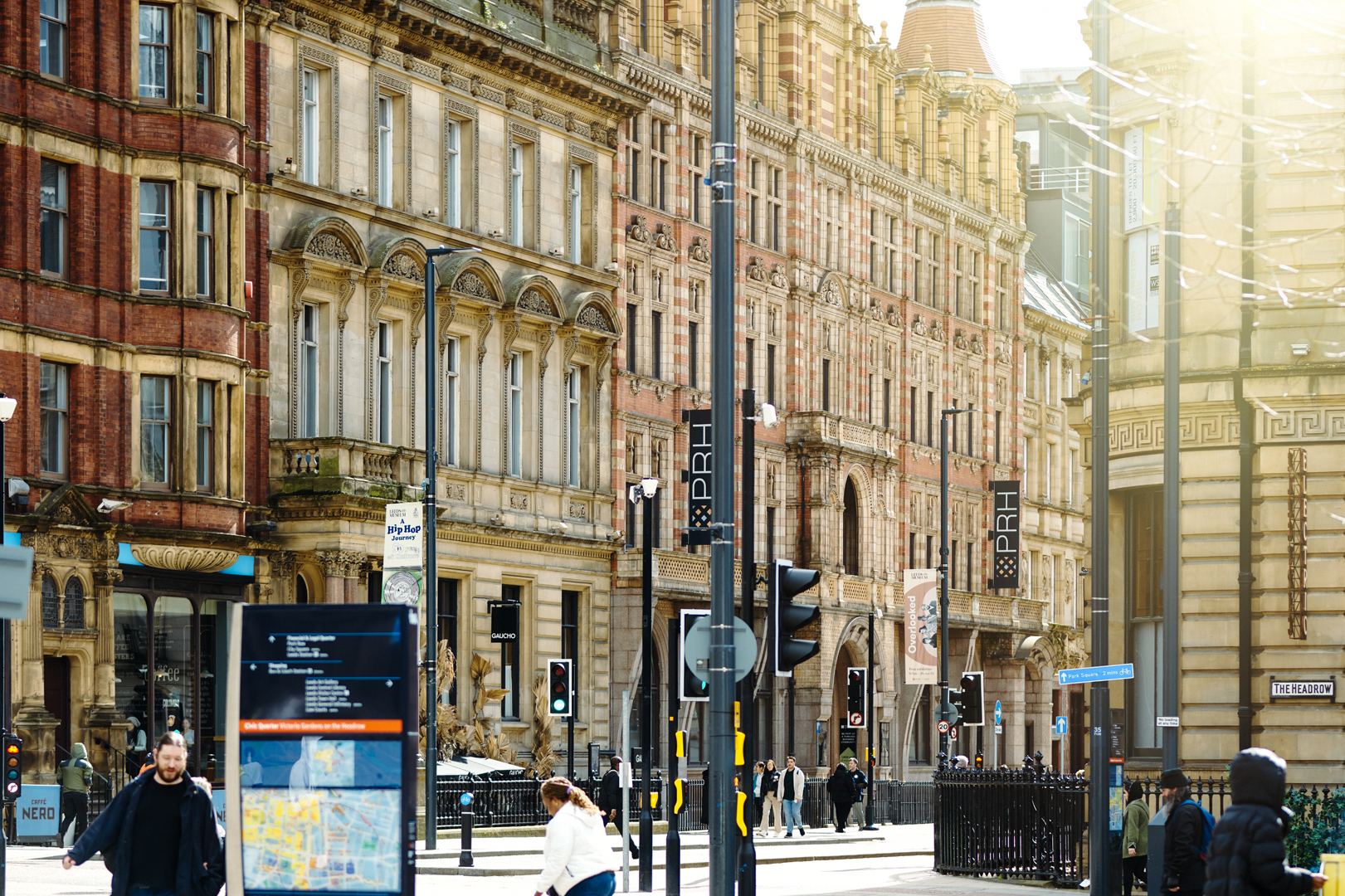
Exploring Life in Leeds – An In-Depth Guide
